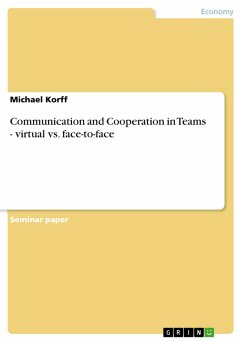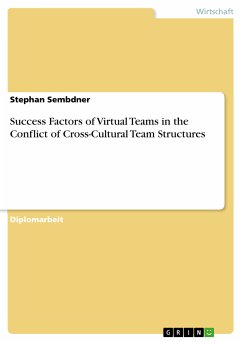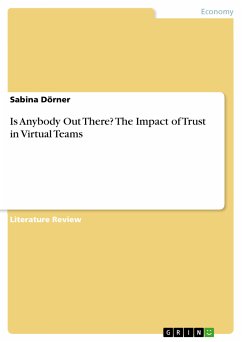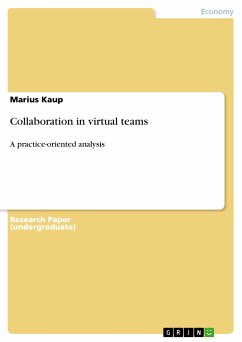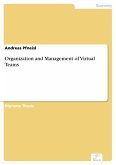Seminar paper from the year 2005 in the subject Leadership and Human Resource Management - Miscellaneous, grade: 2,0, University of Applied Management (Fachbereich Betriebswirtschaft), course: Communication and Cooperation, language: English, abstract: The growing significance of computer and internet as a work and communication medium can observe increasing tendencies of decentralization, mobilization and mechanization of our work. That means the interest in virtual cooperation rises strongly in many enterprises. This kind of labour organization offers the possibility of concentrating the knowledge of different co-workers and/or external specialists also over long distances (over countries or even continental borders) in a team. However, the unification of specialist and expert knowledge is made possible by the use of suitable in-formation and communication technologies only. With these aids this knowledge is (apparently) callable without any larger temporal delay. That brings substantial cost advantages by a shortened achievement completion and decreased travel times and costs and makes a contribution in such a way through cost optimization to the receipt and for the increase of competitive ability. In order to be able to ensure efficient working in virtual teams at all a set of basic conditions must be considered. Substantial factors apart organization of work and used instruments are humans involved in that process, especially their communication and cooperation behaviour. This essay will briefly examine what kind of differences in communication and cooperation exist between a virtual and a conventional (face-to-face) team. [...]
Dieser Download kann aus rechtlichen Gründen nur mit Rechnungsadresse in A, B, BG, CY, CZ, D, DK, EW, E, FIN, F, GR, HR, H, IRL, I, LT, L, LR, M, NL, PL, P, R, S, SLO, SK ausgeliefert werden.

